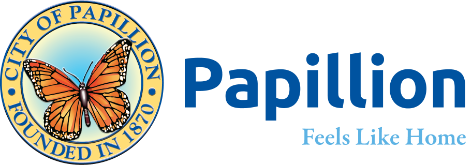Project Information
Sergeant Mad Bear (Kuruks Tîčaris) Recreation Area (formerly WP-2 Regional Detention Basin) is a flood control structure included in the Plan. It is placed on a tributary to the South Papillion Creek that controls over 700 acres of drainage area and will provide flood reduction benefits on the South, West and Big Papillion Creek branches. It is located at an existing NRCS grade control site, which is a small embankment that will be partially removed to accommodate the new dam structure. The water quality basin upstream of WP-2 has already been constructed, as the sanitary sewer line from the adjacent neighborhood runs through the embankment and development pressures required this to be constructed ahead of the dam. A stream mitigation design was developed for the segment downstream of the future dam. This work will stabilize the stream bed from future degradation, restore bank slopes to natural slopes and vegetation, and reuse trees removed for the project as habitat and bank stabilization features.
Supplemental funding from the Nebraska’s Water Sustainability Fund was granted for WP-2 due to the flood control, grade stabilization, water quality improvements, recreation, and wildlife habitat improvement benefits of the project. The pool of the existing grade control structure has filled with sediment delivered from the watershed. The Nebraska Game and Park Commission will fund the removal of the deposited materials in locations adjacent to day use facilities and angler access features. The City of Gretna will take over ownership and maintenance of the recreation area, while the Papio NRD will maintain the dam structure. Nebraska Game and Parks Commission will begin stocking the lake with fish as soon as there are sufficient water depths for the species to survive.

Project Location

Project Details
Status: In-Progress
Estimated Open Date: Fall 2025
Location: Sarpy County, NE
Drainage Area: 705 acres
Lake Area: 17 acres
Park Area: 84 acres
Trail Length: 1.09 miles












